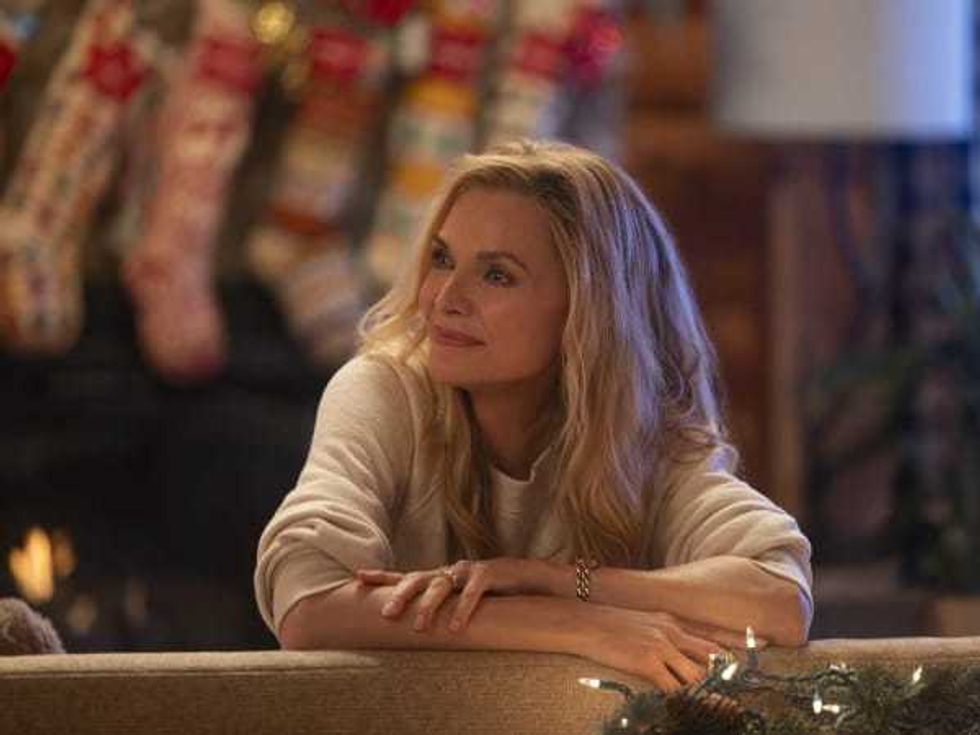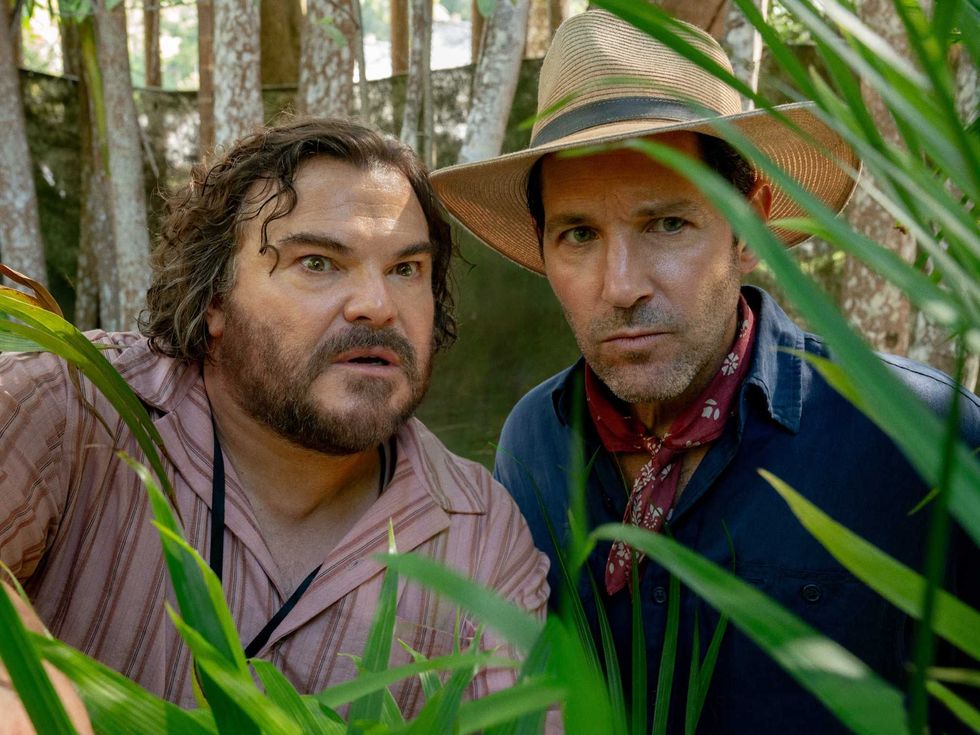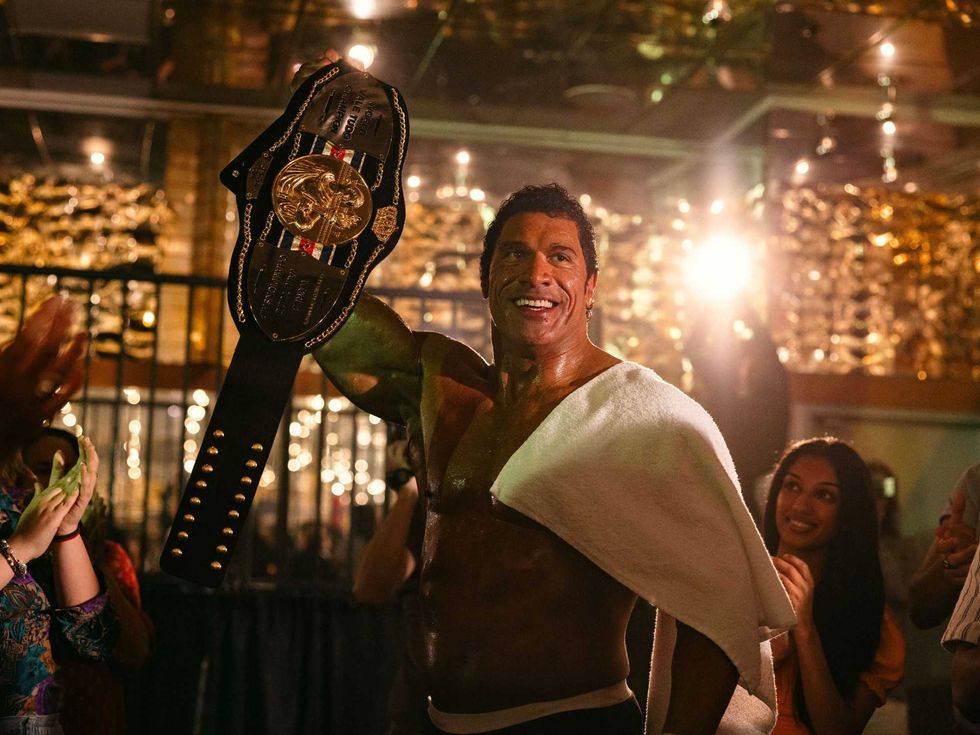The other flower in town
The prof in the play: Downtown teacher by day, Marybelle Chaney faces a Shop ofHorrors at night
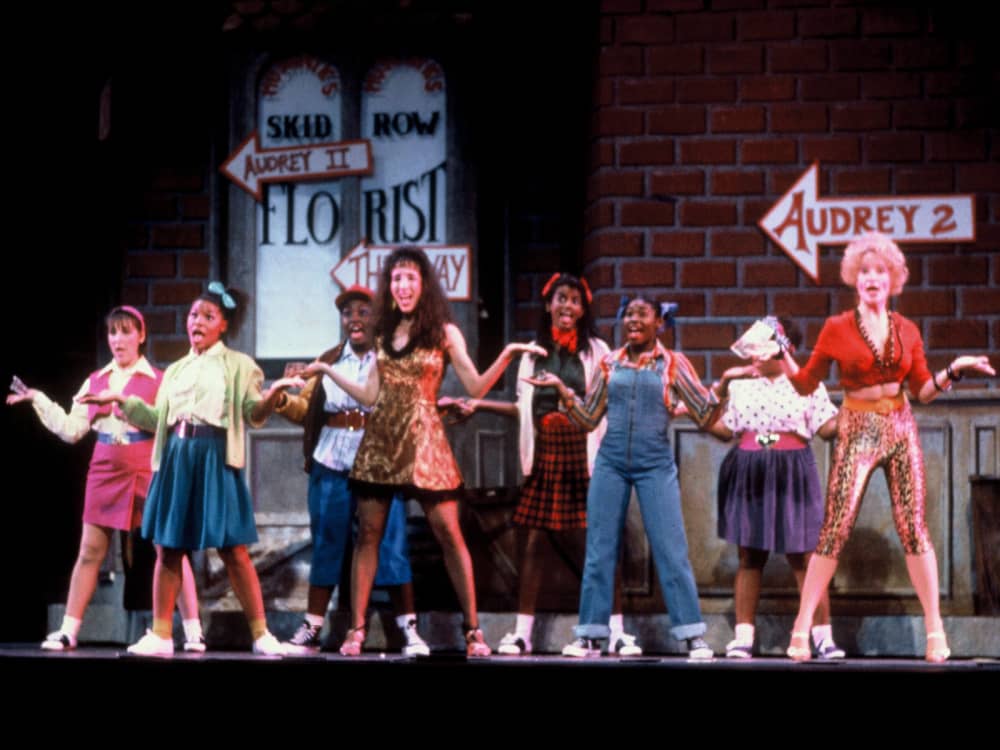 Marybelle Chaney a.k.a. Professor Chaney plays Chaffon in the TUTS Production of"Little Shop of Horrors". (Center, brown dress)
Marybelle Chaney a.k.a. Professor Chaney plays Chaffon in the TUTS Production of"Little Shop of Horrors". (Center, brown dress)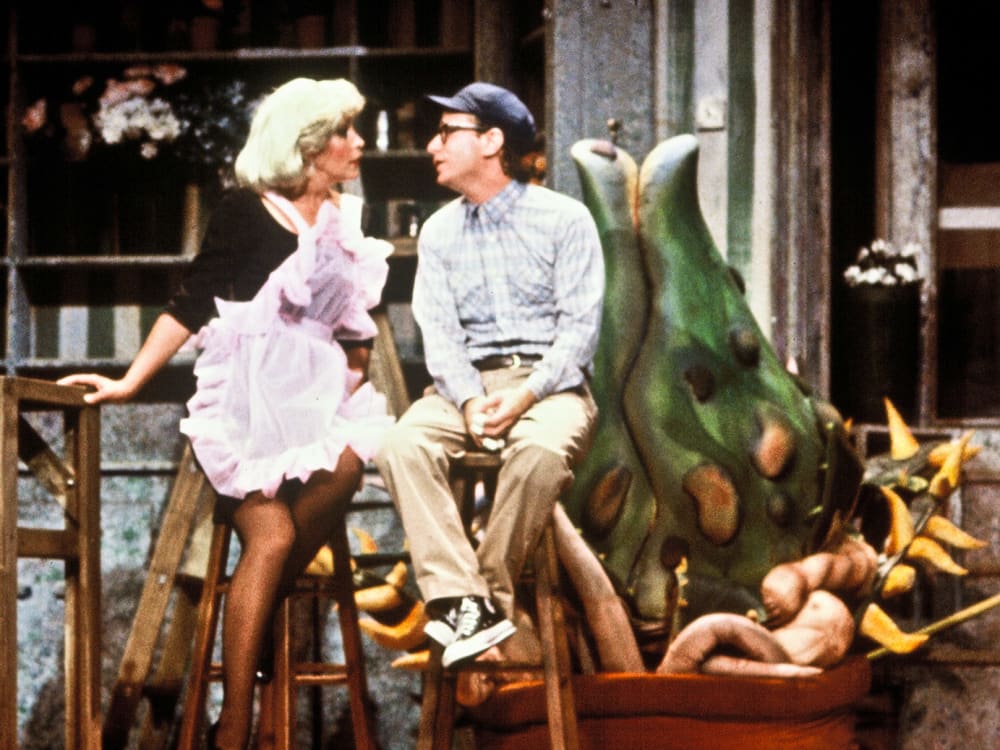 Forget the corpse flower. This is one planet that opens.
Forget the corpse flower. This is one planet that opens.
"I have to rest my voice because I have a rehearsal," Marybelle Chaney, acting and drama professor at the University of Houston-Downtown, says, before we jump into the lesson for the day. In between rehearsals and teaching classes, Chaney puts on a wig and costume and becomes Chiffon in the Theatre Under the Stars' free production of Little Shop of Horrors, which ends its run tonight at Miller Outdoor Theatre.
With long practices that include singing and dancing, Chaney still makes it to UH-Downtown for her Acting I class with more energy than a handful of her twentysomething students combined.
At each class, we practice "ha-hey-hee-ho-hoo" diaphragm exercises. As we have our talk for the day, students discuss the musical and the TUTS production. Then a student had an epiphany: "All of the exercises we have been doing have been helping you out as well."
It is true that Chaney has been fitting in some practice into the class, but in the end we are all practicing because we will eventually have to put the skills we are learning into our own graded performances.
With a comprehensive musical theater career working with Actors' Equity and TUTS, Chaney is a local performer who continues to teach the art of acting at UH-Downtown.
"I see this class as teaching the discipline and the skills of acting to students and let them understand that," Chaney says. "Let them maybe get a respect for it. And I hope, use these skills in their future. Be it, what degree they get in, whether it's working together skills, memorizing skills, study skills. Discipline, discipline, discipline is what I teach.
"I love teaching college and it is really my plan A. It's what pays my bills. There was a time in my life when I did (acting) on a full-time basis. Now I do it periodically because of the economy, because of my age, I want to have a life. Actors work nights and weekends. So when I do work, I absolutely enjoy it, and it helps me be a better teacher because I am teaching something I actually still do.
"And I would say about 80 percent of the my lectures and syllabus and what I come up with to teach my students is coming from experience because this is a field where you have to do this. You have to experience performing and going through this whole process of auditioning, rehearsal, performance," Chaney continues. "And then, having a career in it because it is a business. When you go, you are marketing yourself, you're the tool, the instrument you are trying to sell. And you have to understand it is a business too. They are looking to make money; producers want to make money.
"So there's the show business side of it, but the arts side of it is wonderful. There's nothing better. I love it. But at this point of my life, it helps me be a better teacher because my performing is not what gives me my income, what pays my rent."
There have been some students who have continued to pursue acting. Some have even received jobs here in town according to Chaney. But just because you are looking to move forward on an acting career path doesn't mean you should give up on a college degree. Some friends of Chaneys' who have had their name in Broadway lights are now struggling because they didn't have a plan B, like a college degree. This is a lesson Chaney tells her students if they ever decided to get serious.
"If I get students excited about this art form, it's awesome," Chaney says. "If they end up doing it, I am thrilled that they get involved in it enough that they want to make a living. I just always hope that they understand that this college education they are getting here is important because a lot of actors don't go to college. Because this is the kind of craft where you experience and get better and better to get jobs. But you are out of work a lot as an actor. You need a plan B."
On the day of this interview, a review for Little Shop of Horrors that was hardly flattering came out in the Houston Chronicle. I ask Chaney to comment on how to take reviews in general.
"All actors hope that the audience enjoys the show," Chaney says.
Acting of course isn't all about reviews, going to see shows or even acting really. Whatever you learn about acting in Chaney's class — if you pick up discipline too — that will apply throughout your life whether you are on a movie set or in an office, she believes. Discipline to have a better memorization, study skills, and possibly, the discipline to go further in any path you choose, maybe even becoming a character on stage playing against a plant.
They don't quite teach that in Acting 101.






